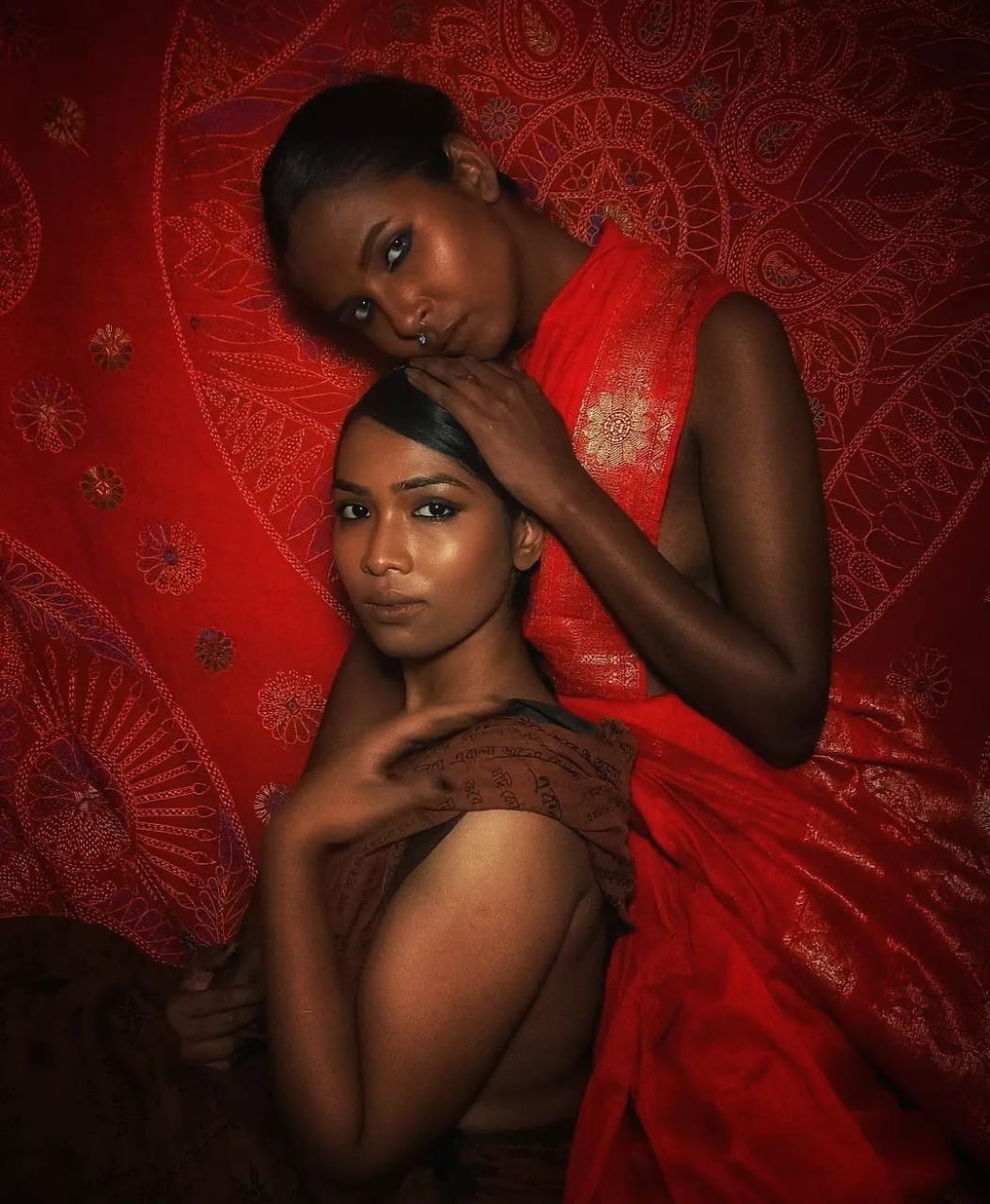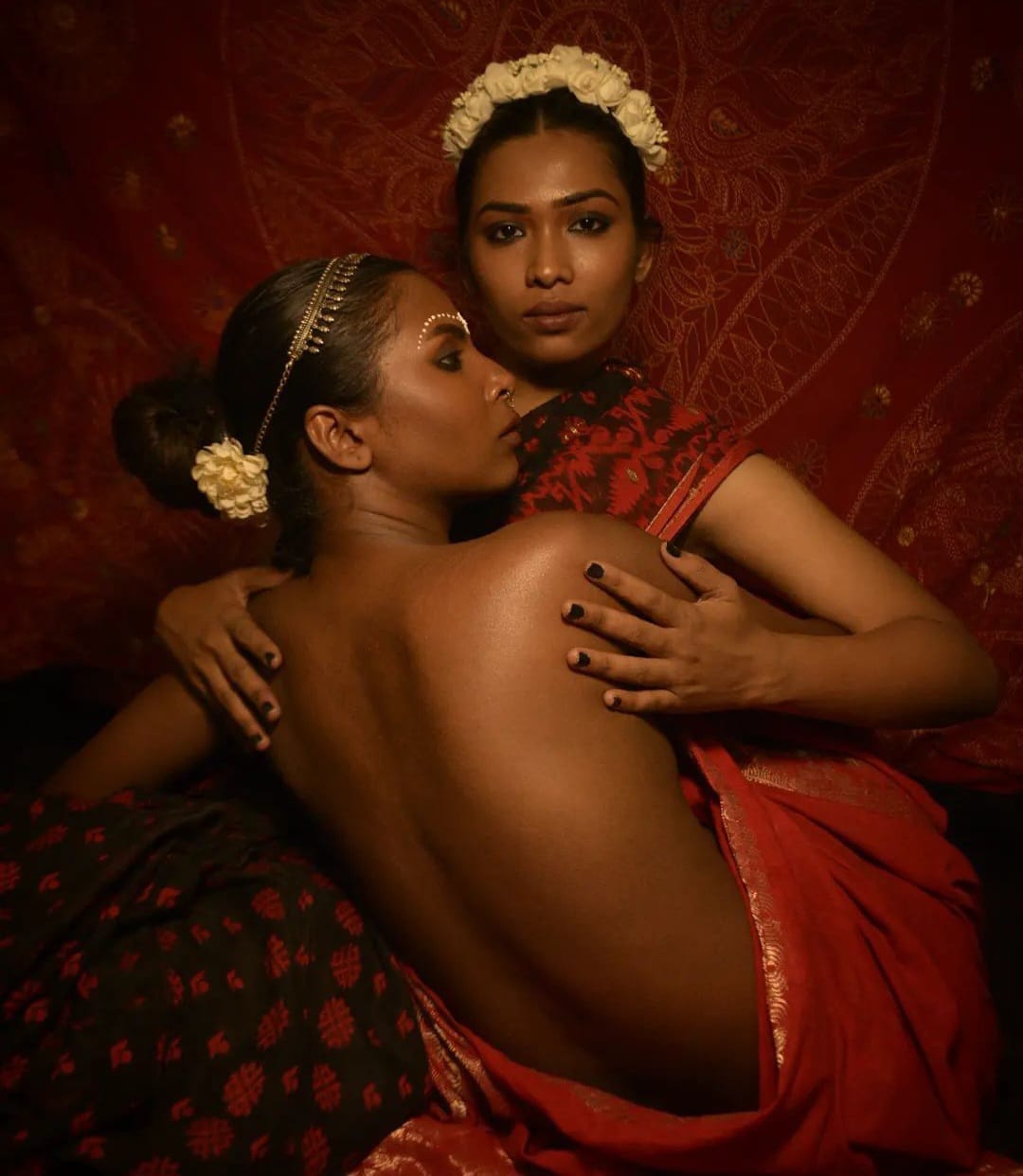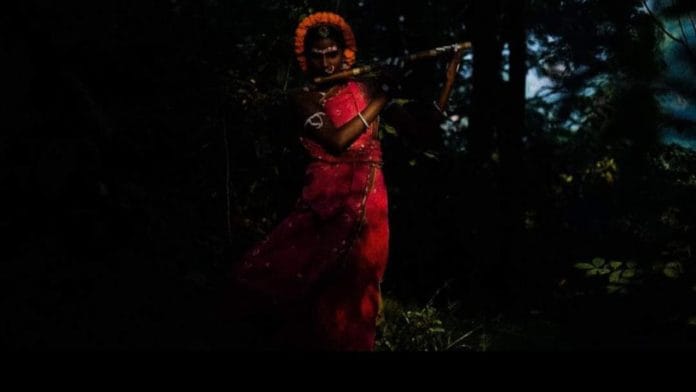Dhaka: A day before Barbie released, Ashna Habib Bhabna dressed herself in pink, got clicked and put up her pictures on social media with the caption: “I am a Barbie girl in the Barbie world, Life in plastic, It’s fantastic.” The pictures went viral and drew their fair share of hearts and hate, which Bhabna says she is used to by now being a popular face in Bangladeshi cinema. But she says there were comments accusing her of “blasphemy” for dressing up as Barbie, surprisingly just days after she put up a picture of herself in hijab with the words “Fajr Alhamdulillah”.
“It was Eid,” Bhabna told me in person. “And I am a devout Muslim. I do not need society to tell me how to be a good Muslim, or what to wear, what to eat and who to love. My conversations with Allah are my private matter. I do not need middlemen.”
The charmed life
Bhabna, who is in her mid 20s, is part of a small tribe of women and men in Dhaka who live a charmed life. They work, live, party as if they could be anywhere in the world. Their evenings are spent in Dhaka’s posh Uttara, Banani, Gulshan, and Dhanmondi — areas that look like little islands of affluence and extravagance with breathtakingly beautiful bungalows and high-end restaurants, cut off from the dirt and grime and endless traffic snarls of the rest of Dhaka. Hopping from one house party to the next, alcohol flowing freely, joints passed around, and new hookups with every sunset, this swinging set seems oblivious to the realities of a city bursting at the seams and a country on the verge of great political instability.
It is this set that Nadeem Zaman describes in his bold, new novel The Inheritors. Zaman’s hero Nisar Chowdhury comes back to Dhaka from Chicago to sell his father’s remaining properties. He knows few people in the city, having left it as a boy. The ones he knows are inheritors of power and privilege. So, Nisar’s evenings are spent in the midst of the same charmed circle of beautiful people in one house party or the next, drinking good alcohol, smoking joints, and watching his beautiful cousin lose her sanity trying to decide who to be with, the ex-husband or the married lover. Outside, corruption, killer heat, and honking cars stuck in endless jams keep Dhaka on the edge.
Also read: Communal violence in the time of Modi has a distinct shade. Here’s why
Clash of cultures
The Inheritors will be adapted for OTT soon, but even this charmed set is not immune to reality checks from time to time. Bhabna herself is often a victim of vicious trolling online and snide remarks from friends and colleagues offline as she chose to love a “much older Hindu man”. “I have never been with a Muslim guy. I fell in love with director Animesh Aich when I was very young and I am open about my love for him. I face a lot of discrimination in my industry for this. I am quietly dropped from films, I am denied opportunities, but I do not care. Once, at a party, a director asked me if I marry Animesh what would happen when I die. I asked: ‘what’? He said people may refuse to bury me and my body would lie on the streets and become food for dogs! Can you believe it? But I have learnt to give back as good as I get. So I told him I love dogs. I would love it if dogs eat up my body.”
Not everyone has Bhabna’s nonchalance. When Asma Ul Husna Bristy, a fashion model, dressed up as Krishna and put up the picture on Facebook, there was a barrage of hate comments that she had not accounted for. “It was a beautiful concept. Red sari, flowers on hair and a flute. It’s me in the jungle, alone, as the day merges into dusk. I could be Krishna or I could just be me,” Bristy says. But the ones on her Facebook friend list saw only a Muslim girl dressed as a Hindu god. Hate-posting followed.


Also read: First Arab world, now Canada saying enough is enough to Muslim-hating overseas Indians
History of violence
If this was limited to online attacks, it would still have been okay. But Dhaka has not forgotten the night of 1 July 2016. The Holey Artisan Bakery in Gulshan neighbourhood was a posh eating-out place where the beautiful people of Dhaka gathered every evening. The New York Times described it as “among the most beloved restaurants in Dhaka”. On 1 July, at 9.20 pm Bangladesh time, five militants entered the bakery with bombs and pistols, and took several dozen hostages. The night ended with 29 people getting killed, including 20 hostages (17 foreigners among them), two police officers, five gunmen, and two bakery staff. The attackers were young boys, educated and mostly from upper middle class families. They belonged to the Jamaat-ul-Mujahideen.
Sahidul Hasan Khokon, who was outside the bakery covering the attacks live for television, says: “The Holey Artisan Bakery attack shook Bangladesh. First, the bakery itself was the haunt of the crème de la crème of Dhaka society. Second, the perpetrators belonged to the same social set. It was as if one half of the upper crust of Dhaka society had become radicalised and attacked the other half. For a while, it felt as if there was no hope. If boys who went to posh schools, played football, listened to English music could become radicalised, what hope is there for the less fortunate.”
Last year, Hansal Mehta made a film titled Faraaz on the Dhaka restaurant attack.
Bangladesh promptly banned the film.
Hiding in plain sight
By banning Faraaz, Bangladesh cannot look away from the fact that between 2013 and 2016, the streets of Dhaka and elsewhere have witnessed attacks on atheist and secular writers, bloggers, publishers, foreigners, homosexuals, and religious minorities. People have also been killed for having committed “blasphemy”.
Which is why when Asma Ul Husna Bristy becomes Krishna or does a “bold” topless shoot hugging another woman model, she runs the risk of facing much more than online hate.
“There is always a risk in Bangladesh. But I would still say we are pretty safe from the outside world. Unlike the models and the actors, most of us are not public figures. What we do stays within the four walls of where we party,” says Oliur Sun, writer, fashion photographer and queer rights activist. “We are this tiny one per cent of Dhaka. Maybe even less. There are several challenges you have to face if you embrace a non-normative life in a Muslim-majority city like Dhaka. But most of us have access to certain economic and cultural powers that allow us to have some sort of freedom. Without these powers, we would have been shut down,” he says.
Bhabna points to the simple act of drinking. In Dhaka, you can drink if you have a foreign passport. Or you have a paper from the government that brands you a “drunk”, and says that you are suffering from a medical condition. “But in house parties, alcohol flows free. Where are the bottles coming from? There are only the top hotels and a few designated places in the city where you get alcohol from. But most of Dhaka’s partying set travel abroad regularly; some have foreign passports too. With power comes access and with access the freedom to do exactly what you want,” she says. “We are all hiding in plain sight.”
“Which may get claustrophobic,” Sun points out. “Night after night, party after party, it is the same set of people, meeting, gossiping, smoking up and hooking up. If you go to a Dhaka wedding, you may meet a hundred new people. But in our parties, there is no such luck.”
Recent years have seen religiosity get more pronounced not just in Dhaka but in Bangladesh as a whole. On the roads of Dhaka, in the attire of the women and men, there are easy markers of religious identity that seem to snub out any attempt at cosmopolitanism. The huzurs are now all over social media telling you everything from the correct way of praying to the many ways of keeping husbands happy.
Does this affect the swinging set? “It does not. Like I said, unless you are a public figure and are outspoken about who you are, you often learn to lead a double life. You are one thing for your family and society and quite another at these house parties,” Sun says.
National elections are round the bend. Does it matter who wins or loses? Can it change things for the better or worse for the swinging set? “That’s the thing about privilege,” says Bhabna. “No matter who wins or loses, the party will go on!”
Deep Halder is a writer and journalist. He was an executive editor with the India Today Group and is the author of ‘Blood Island: An Oral History of the Marichjhapi Massacre’ (2019), and ‘Bengal 2021: An Election Diary’ (2021). He tweets @deepscribble.
(Edited by Prashant)






